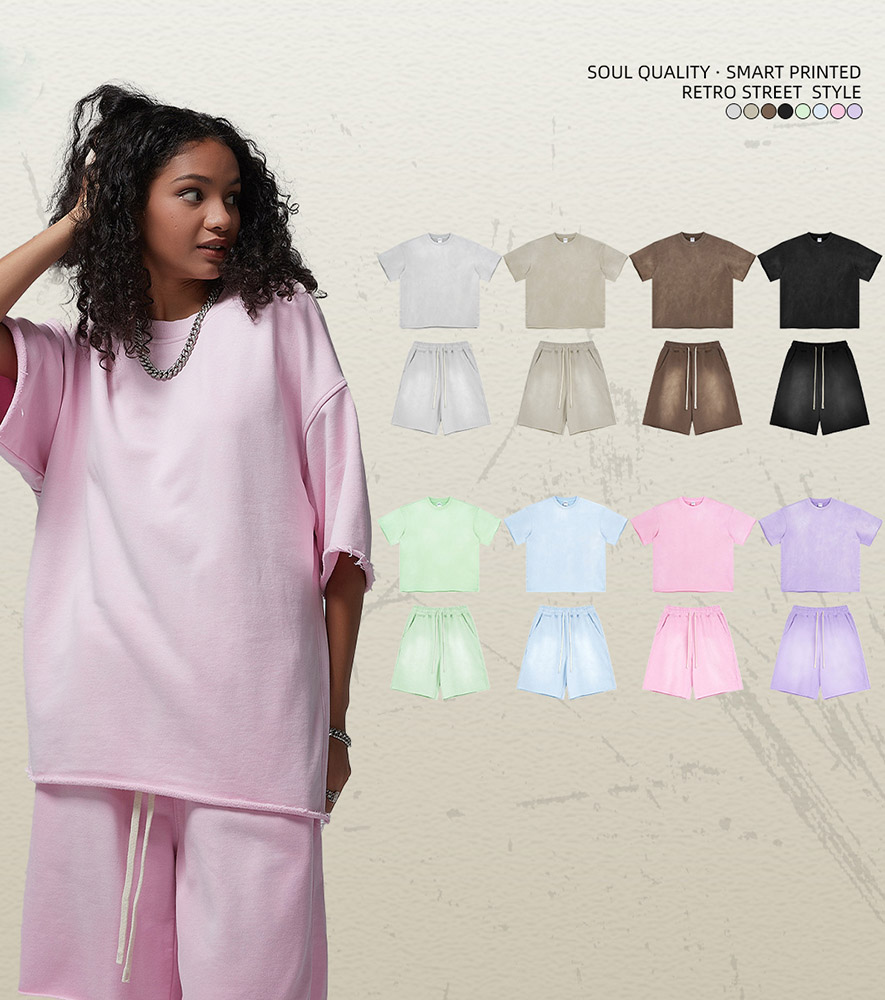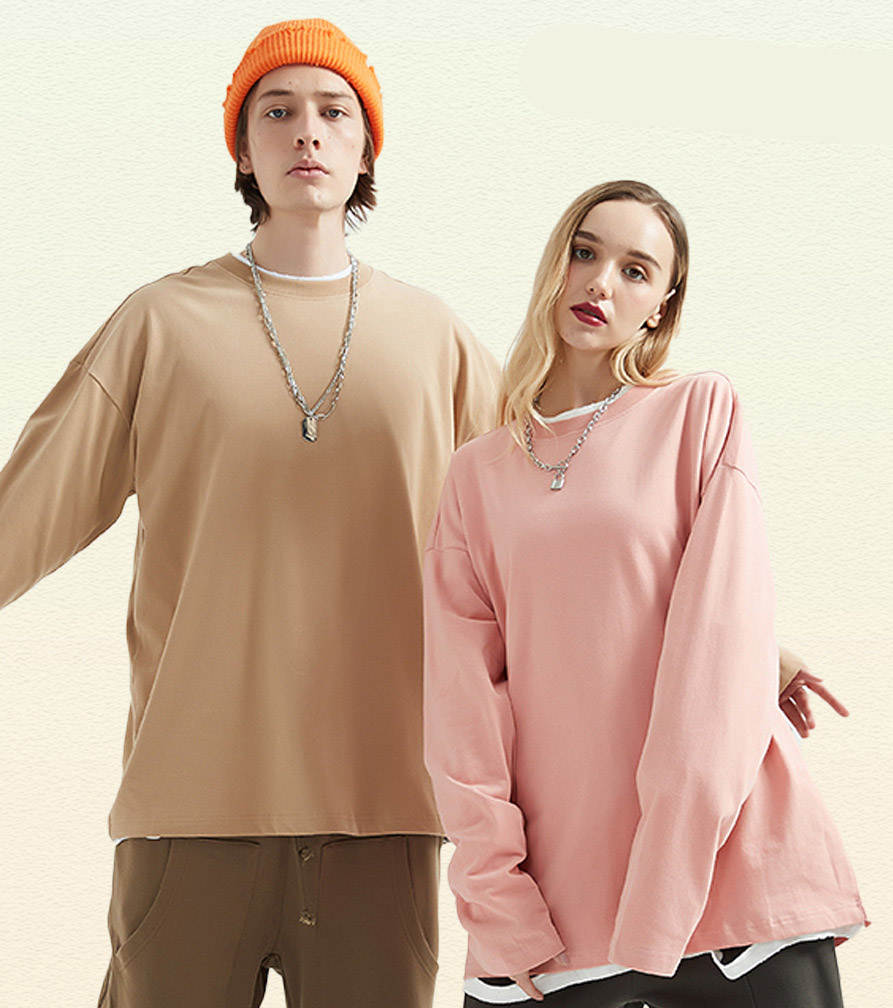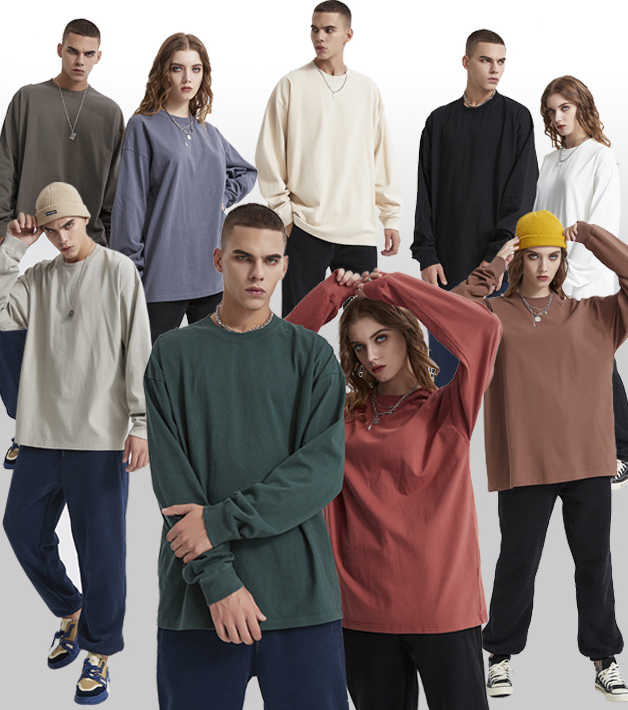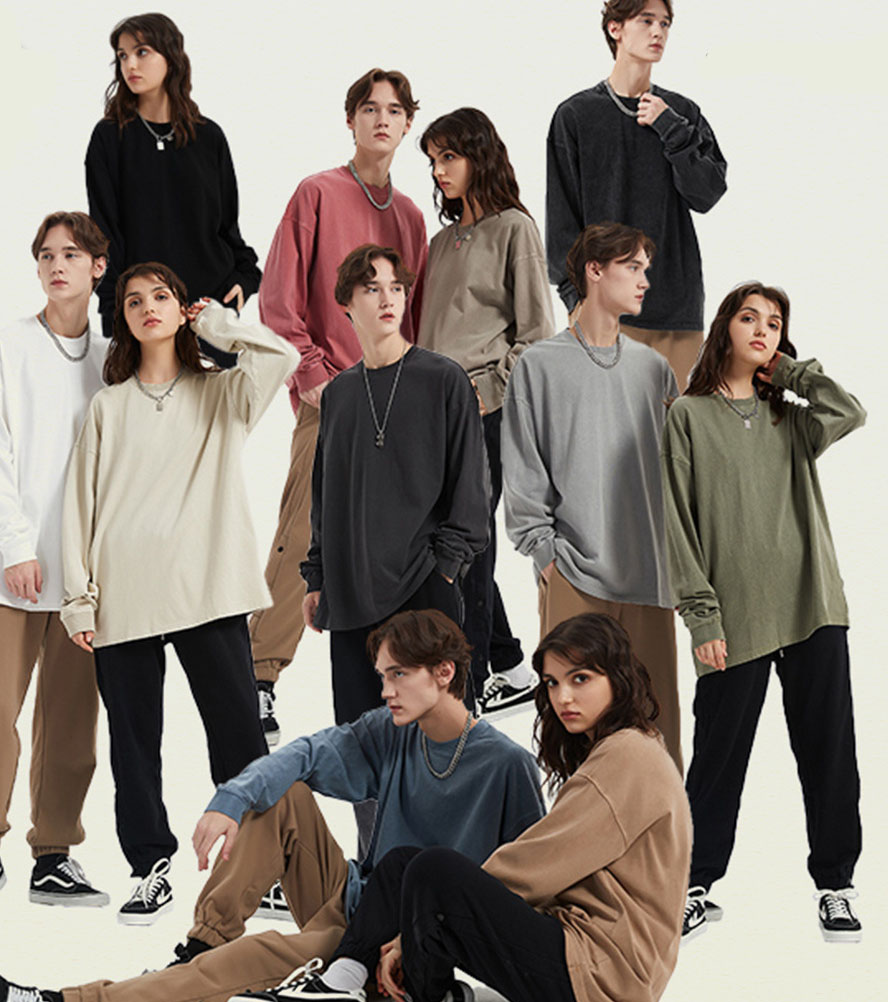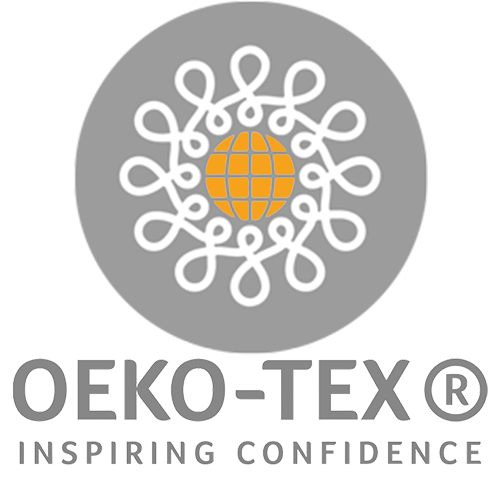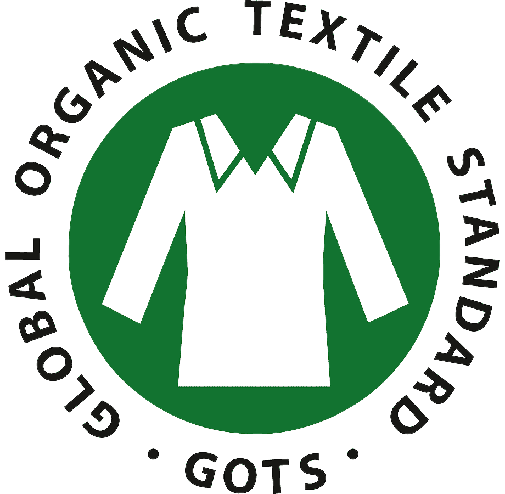Choosing a 100% cotton1 shirt can make all the difference in comfort, breathability, and longevity. But with so many blends and misleading labels, how can you be sure what you’re really getting? A few quick checks—plus some insider manufacturing tips—help you confidently identify cotton content at home or when sourcing from suppliers.
To tell if a shirt is 100% cotton, check the care label, feel the fabric, perform simple at-home tests like the burn test2, and look for manufacturer certifications. Reputable brands and factories follow strict labeling and testing standards to guarantee fabric purity.
After years in apparel manufacturing, I’ve seen firsthand how fabric identification works in factories—and how to avoid being fooled by blends. Here’s how you can check too.
Label Inspection: The First Step in Identifying Fabric Content
Always start with the information provided by the manufacturer—it’s the fastest and easiest check.
Look for a care or composition label inside the shirt. It should clearly state “100% cotton” or list the fiber percentages. Most reputable manufacturers and brands follow international fabric labeling standards.
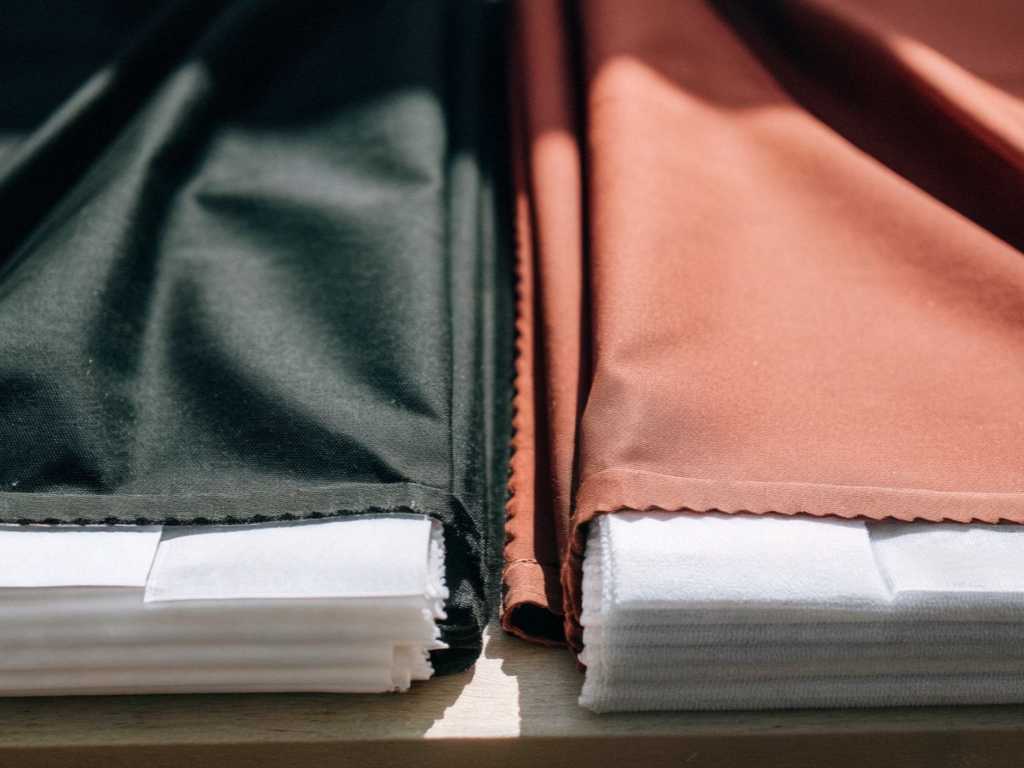 Black and Rust Fabric Stacks
Black and Rust Fabric Stacks
What information should you look for on the care or composition label?
The label should specify the fiber content—e.g., “100% cotton,” “90% cotton, 10% polyester,” or similar. It may also include the country of origin and care instructions.
- Some labels add certifications (like OEKO-TEX3, GOTS) or fabric finishing info (e.g., “pre-shrunk cotton”).
- If the label is missing, faded, or vague, be cautious—some low-cost or unbranded shirts skip proper labeling.
Do all T-Shirt Manufacturers follow standard fabric labeling practices?
Most established brands do, as required by law in many countries (US, EU, UK, Australia, etc.). However, some low-end or unregulated manufacturers may use inaccurate or misleading labels.
- Import/export regulations often mandate detailed labeling for transparency and consumer safety.
- If you’re sourcing shirts for resale, always request a composition declaration from the supplier.
Simple At-Home Tests for Cotton Identification
When in doubt—or if the label is missing—use basic tests to check fabric content.
The “burn test,” fabric feel, and wrinkle resistance are easy ways to tell cotton from blends. 100% cotton ignites quickly, smells like paper, feels soft but crisp, and wrinkles easily.

Can the “burn test” help distinguish cotton from synthetic blends?
Yes. Carefully cut a few loose threads and hold them over a flame (outdoors, with safety precautions).
- 100% cotton burns clean, leaves a fine gray ash, and smells like burning paper.
- Polyester melts, shrivels, and smells chemical or sweet; blends show both behaviors.
- Never perform this test on a finished shirt—use only tiny fabric scraps or threads.
How does feel, weight, or wrinkle resistance suggest fabric type?
-
100% cotton feels soft, breathable, and slightly crisp—not slick or stretchy like synthetics.
-
Cotton wrinkles easily, especially when scrunched or rolled.
-
Blended fabrics often feel smoother, stretchier, and resist wrinkles.
-
Hold the shirt up to a bright light—polyester threads often reflect more or appear shiny.
-
Pull gently—cotton has minimal stretch, while spandex or poly blends bounce back.
| Test Method | 100% Cotton Result | Blend/Synthetic Result |
|---|---|---|
| Burn test | Clean burn, paper smell, ash | Melts, chemical smell |
| Wrinkle test | Wrinkles easily | Smoother, resists wrinkles |
| Stretch test | Minimal stretch | Noticeable bounce |
Comparing 100% Cotton with Cotton Blends
Blends are popular for durability and cost, but they feel and perform differently from pure cotton.
Cotton-polyester shirts are more durable, stretchier, and resist wrinkles—but may feel less breathable. 100% cotton shrinks and fades more, but offers superior softness and comfort.
How do cotton-polyester shirts differ in touch, stretch, and durability?
-
Cotton-poly: Smoother, lighter, dries faster, holds shape well.
-
100% cotton: Softer, denser, breathes better, but creases and shrinks more easily.
-
Many performance T-shirts are 50/50 or 60/40 blends for moisture-wicking and shape retention.
-
Fashion and comfort-focused brands stick with 100% cotton for classic feel.
Do 100% cotton shirts shrink or fade more easily than blended ones?
Yes. Cotton’s natural fibers are more affected by heat, water, and UV exposure, leading to more shrinkage and fading.
- Look for “pre-shrunk” or enzyme-washed labels to minimize this issue.
- Polyester and other synthetics keep colors brighter longer and reduce shrink.
T-Shirt Manufacturer Insights: How Fabric Is Verified at the Factory
Reputable factories don’t just trust the label—they test and certify fabric purity before production.
Most major manufacturers use lab testing and internationally recognized certifications (like OEKO-TEX, GOTS) to verify 100% cotton content. These standards require strict fiber purity and chemical safety checks.

Do reputable manufacturers use certification or lab testing for fabric purity?
Yes. They send raw materials or finished fabrics to textile labs for fiber analysis, strength tests, and harmful substance screening.
- Lab reports can identify cotton, polyester, viscose, and other fibers with high accuracy.
- Brands sourcing from overseas should always request test certificates.
What standards (e.g., OEKO-TEX, GOTS) confirm 100% cotton composition?
-
OEKO-TEX® Standard 100: Verifies no harmful substances and fiber content.
-
GOTS (Global Organic Textile Standard): Confirms organic fiber purity and ethical production.
-
BCI (Better Cotton Initiative): Focuses on responsible farming, not always purity.
-
Certifications are often noted on hangtags or packaging—look for these as extra proof of content and safety.
-
Serious brands display these certificates for buyer confidence.
| Certification | What It Proves |
|---|---|
| OEKO-TEX | Fiber purity, safety |
| GOTS | 100% organic cotton, traceability |
| BCI | Responsible cotton farming |
Conclusion
To identify 100% cotton shirts, check the label, test the fabric at home, and look for certifications from reputable manufacturers. Knowing what to look for helps you choose the right shirt for comfort, durability, and peace of mind—every time you shop.
-
Explore the advantages of 100% cotton clothing, including comfort, breathability, and durability, to make informed choices for your wardrobe. ↩
-
Learn the proper method for conducting a burn test on fabric, a reliable way to distinguish cotton from synthetic blends. ↩
-
Discover the significance of OEKO-TEX certification in ensuring fabric safety and purity, enhancing your shopping confidence. ↩




